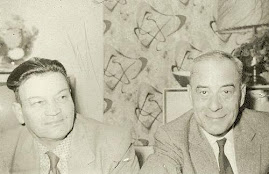UN panel tells Canada to improve human rights record
Laura MacInnis, Reuters Published: Tuesday, February 03, 2009
http://www.nationalpost.com/news/story.html?id=1248510
GENEVA - Canada should strengthen its domestic violence laws and stop religious discrimination against Muslims, a UN panel said Tuesday.
Germany, Russia, Cuba, Saudi Arabia and China are among the other countries facing a review this month, under a less than year-old process that is meant to ensure all UN members are held to account for their rights records.
In its first examination under the Human Rights Council's Universal Periodic Review, Canada was also urged to do more to improve the welfare of its aboriginal citizens and to review its policies on police use of Taser weapons, following the 2007 death of Robert Dziekanski, an unarmed Polish tourist, at the Vancouver airport.
The Canadian delegation told the 47-member state forum "no country, including Canada, has a perfect human rights record."
"It is important that every country open their human rights records to scrutiny, both domestically and internationally," Canada's deputy justice minister John Sims told the session in Geneva, where both the UN High Commissioner for Human Rights and Human Rights Council are based.
The reviews could help the nearly three-year-old Human Rights Council gain credibility as a watchdog for wrongdoings.
Since its launch in 2006, the council has held special sessions on Myanmar, the Democratic Republic of Congo, Sudan's Darfur crisis, and Israel.
The council's predecessor, the UN Human Rights Commission, was seen to be largely ineffective.
Canada faced questions about its anti-terrorism laws, including a controversial "special advocate" measure in which a court-appointed lawyer with high security clearance stands in the place of certain detainees in their hearings.
Mr. Sims said the practice was meant to protect highly sensitive information while ensuring detainees get fair treatment.
"This program special advocates will be challenged and will work its way through the Canadian court system. It will, in this way, be tested for how well the government has struck this important balance," he said.
On racial and religious profiling, he said that it was not used as it was contrary to the law. Canada's "bias-free" recruitment of police meant its force included racial or ethnic minorities less likely to engage in such practices, he said.
Addressing the concerns raised that it should ratify more human rights treaties, Sims said that Canada chose not to join the UN Declaration on the Rights of Indigenous Peoples in September, 2007 because it was too vague on some issues.
"We are aware that Canada's position has generated a number of adverse reactions. I wish to stress, however, that Canada remains committed to fulfilling its human rights commitments to aboriginal peoples in Canada," he said.
The UN panel also said Canada ought to accede to UN treaties on enforced disappearances, the rights of migrant workers, and an optional protocol to the anti-torture pact.
Canada slipping on human rights: Amnesty
Louisa Taylor, Ottawa Citizen Published: Monday, February 02, 2009
OTTAWA - Canadians have long prided themselves on being the good guys when it comes to protecting human rights at home and abroad, but that's no longer always the case, says Alex Neve, secretary general of Amnesty International Canada.
"Canada has started to be a problem with regard to some human rights issues and has in fact started to get in the way of protection," said Neve, citing as an example Canada's "aggressive opposition" to the 2007 adoption of a United Nations Declaration on the Rights of Indigenous Peoples. Canada was one of only four countries to vote against the measure.
Under Prime Minister Stephen Harper, the Canadian government "set out to block and defeat" the declaration, says Neve. "Other countries can't believe they saw that kind of behaviour from Canada and it has significantly set back and undermined our authority on the world stage."
Neve was speaking in advance of a speech he's making at the University of Ottawa Monday as part of its International Development Week activities. The theme of the week is Development: A Basic Human Right? and featured speakers include former minister of Foreign Affairs Lloyd Axworthy, Council of Canadians chair Maude Barlow and journalist Alexandre Trudeau.
Neve says he was asked to reflect on the state of human rights protection in the world today, a timely topic a month after the 60th anniversary of the Universal Declaration of Human Rights.
"There is a great deal to celebrate and the world has come forward leaps and bounds from that time, in spite of horrific tragedies," such as Rwanda and Darfur, said Neve.
Canada's place at the forefront of human rights protection begins with the 1948 declaration itself, which was drafted in large part by Canadian legal scholar John Humphrey. Since then Canada has been a leader on many fronts, including the protection of child soldiers, the treaty to ban land mines and the creation of the International Criminal Court.
Neve cites former Conservative prime minister Brian Mulroney's "strong leadership" in the struggle against apartheid in South Africa and on initiatives regarding children's rights as evidence the shift in Canada's reputation can't be explained by blaming one political party or another. But he points to Canada's current position "of complete support of Israel with respect to the very volatile human rights issues that come up regarding Israel and Palestine" as a sign that the Harper government has abandoned previous efforts to remain impartial.
"That has damaged our reputation for principled leadership and objectivity regarding human rights," said Neve. "There's no question it has been since this government took power that we have seen a lot of these changes in policy and positions . . . We need to make it clear that's not Canada's tradition and Canadians want to see a return to principled leadership."
Wednesday, February 4, 2009
Human Rights Council's Universal Periodic Review
Posted by
MetisMama
at
7:42 AM
![]()
![]()
Subscribe to:
Post Comments (Atom)





No comments:
Post a Comment